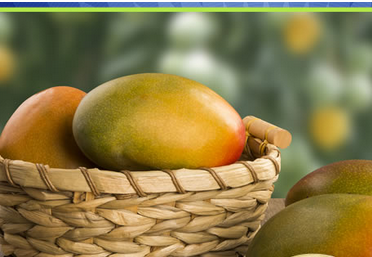PRODUCTS
Contact us
+86-731-86207286
Company:ChangSha Phyto Nutrition Inc.
Address:Xingsha HighTech & Development Zone Changsha China.(410100)
Email:sales@phyto-nutrition.com
Irvingia Gabonensis Extract Albumins
time:2017-03-05 author: phyto-nutrition

Irvingia Gabonensis Extract Albumins
· Latin Name: Irvingia Gabonensis
· Active Ingredient: Albumins
· CAS No.:
· Test method: HPLC
· Specifications: 7%
Product Description:
Name :Irvingia Gabonensis Extract Albumins
Source: Irvingia Gabonensis
Botanical Name :Irvingia Gabonensis
Extract part: Seed
Purity: 7%
Composition: Albumins
Identification measure :HPLC
Appearance: Fine Light yellow to white powder
Country of origin:P.R. China
Source
Irvingia Gabonens ,belongs to the Irvingiaceae family, is a West-Africa-native tree that commonly referred to as Bush Mango ,Wild Mango or African Mango as the plant produce a juicy edible drupe.The fruits that Irvingia Gabonens bears , smooth yellow spheres with a hardened endocarp when ripe,are sometimes referred to as the 'Mangoes' or 'African Bush Mangoes' despite being unrelated to the true Mango fruit.The fruits of Irvingia Gabonens is possess seeds are of interest for various purposes inculding the usage of food products and especially as a soup thickener,pharmaceutical formulations,and cosmetics.Irvingia Gabonensis owns highest concentration of Albumins, which gives it a wider range of affect on weight loss.There is interest in using supplements containing Irvingia gabonensis for weight loss, lowering cholesterol levels, and improving control of diabetes.
Main bio-active
Albumin,a family of globular proteins that is soluble in water , moderately soluble in concentrated salt solutions, and experience heat denaturation,the the most common of which are the serum albumins. Serum albumin is a component of blood serum; α-lactalbumin is found in milk.
Functions
Antidiabetic
Early research suggests that taking Irvingia gabonensis(IG) by mouth daily for one month reduces blood sugar, total cholesterol, and triglycerides and increases “good” high-density lipoprotein (HDL) cholesterol in people with type 2 diabetes.Journal of Herbs, Spices & Medicinal Plants reported a lab study of antidiabetic effect of the seeds of Irvingia gabonensis seed extract (IGSE)in streptozotocin-induced diabetic rats in 2006Results indicate decreases in blood glucose, pyruvate kinase and lactate dehydrogenase activities ; and a higher glucose-6-phosphatase activity in IGSE-fed diabetic rats compared with others not fed IG. Therefore ,IGSE was suggested be a useful adjunct in the management of type-2.Further study supported such presumption ,literature published on Lipids Health Dis in 2009 that after 10 weeks of 150mg Irvingia gabonensis Extract ingestion before lunch and dinner ,blood glucose decreased 22.5% while in placebo they decreased 5.3%,3.15g daily for one month is associated with a 32.36% decrease in blood glucose.
High cholesterol
Lipids in Health and Disease published a series of researches with supports regarding the beneficial effect of IG for diabetes.One study reported a double blind randomised study in 2005 .Twenty-eight of Forty subjects received IG meanwhile the rest 12 were on placebo (P) for one month.The obese patients under IG treatment had a significant decrease of total cholesterol, LDL-cholesterol, triglycerides, and an increase of HDL-cholesterol.The study also shows the mean body weight of the IG group was decreased significantly than the placebo group .
Another study concluded IG extract may prove to be a useful tool in dealing with the emerging global epidemics of obesity, hyperlipidemia, insulin resistance, and their co-morbid conditions.Base on the result of a double blind randomised study on 102 healthy, overweight and/or obese volunteers .The study shows Significant improvements in body weight, body fat, and waist circumference as well as plasma total cholesterol, LDL cholesterol, blood glucose, C-reactive protein, adiponectin and leptin levels were observed in the IG group compared with the placebo group through a variety of critical metabolic pathways including PPAR gamma, leptin, adiponectin, and glycerol-3 phosphate dehydrogenase.
Obesity
Lipids in Health and Disease published report of a double blind randomised study on Forty obese diabetes patients in 2005 . The study showed the mean body weight of the IG group was decreased significantly than the placebo group which is suggested as an evident of IGSE potential application in weight loss .Another randomized, double-blind, placebo-controlled human study reported on Lipids in Health and Disease also showed a statistically significant difference on a total of six anthropomorphic and serological measurements (body weight, body fat, waist size; total plasma cholesterol, LDL cholesterol, fasting blood glucose level).In order to thoroughly determine scientist conduct a set of randomized, controlled trials in 2013 .Base on study result measured from 214 subjects .All studies demonstrated a decrease in weight ranging from 4-12kg (p<0.05). Other measures of weight loss including body fat percentage (p<0.05) and waist circumference (p<0.01) were also significantly decreased by Irvingia gabonensis.But few adverse events were reported include insomnia, flatulence and headache.

